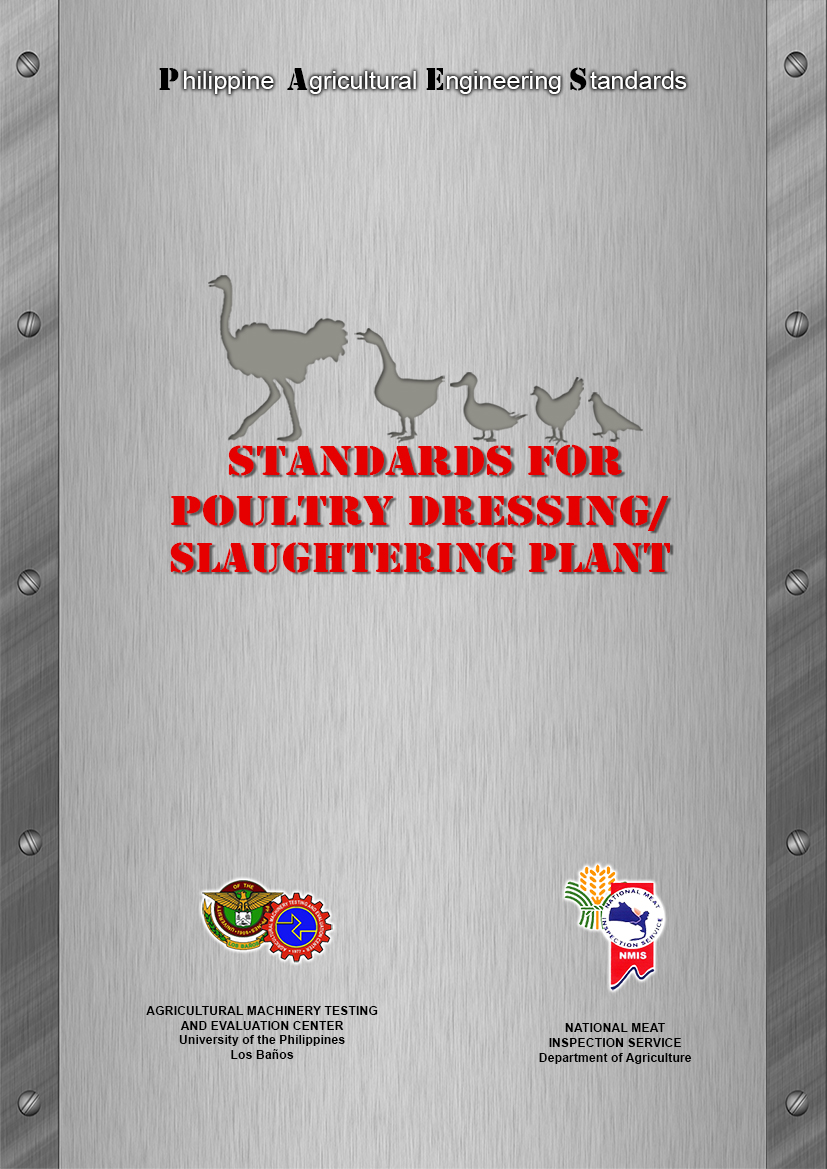VOLUME IX
Foreword
The government is vigorously exerting efforts to achieve rice self-sufficiency. Strategies to achieve this goal involve efforts to increase of production and decrease losses. Agricultural mechanization plays important roles in both approaches. Agricultural production and postproduction machines can increase quality of farm work and help maximize yield, improve turn around tie, can decrease overall production input, help reduce losses and maintain product quality. Design engineers face the challenge of increasing the level of performance of their machines as they continue to design new ones, find approaches and methodologies to enhance the natural agronomic characteristics of the rice plant and also save what has been produced through the photosynthetic processes .
The agricultural machines that enter the market have to have acceptable levels of performance, as defined by standards . These standards are drafted to protect the interest of consumers, the farmers, who will have to use the machines. The government, in a broader perspective, sees the application of agricultural machinery standards as a means by which it can achieve i ts goals of agricultural development in a fair and equitable manner.
This volume of the Philippine Agricultural Engineering Standard (PAES) is an effort to further develop the agricultural engineering profession for the service to the country.
A two-year project entitled “Development of Standards for Agricultural Production and Postproduction Machinery” that started from September 2013 to August 2015 was implemented by Agricultural Machinery Testing and Evaluation Center (AMTEC). It was funded by the Philippine Council for Agri culture, Aquatic and Natural Resources Research and Development of the Department of Science and Technology (PCAARRD-DOST) . The project was able to develop and update standards for specifications and methods of test of selected machines for rice production and postproduction operations.
The standards included in this volume were developed through the efforts and cooperation of various individuals and institutions from different government and private agencies and organizations . These include the Philippine Rice Research Institute (PhilRice), Philippine Council for Agriculture and Fisheries (PCAF), National Food Authority (NFA), Philippine Center for Postharvest Development and Mechanization (PhilMech), Bureau of Agriculture and Fishery Standards (BAFS) of the Department of Agriculture; Metal Industry Research and Development Center (MIRDC) of the Department of Science and Technology (DOST); Philippine Society of Agricultural Engineers (PSAE); Professional Regulation Commission – Board of Agricultural Engineering (PRC-BOAE) ancf Agricultural Machinery Manufacturers and Distributors Association (AMMDA), Inc.
The Bureau of Product Standards (BPS) of the Department of Trade and Industry (DTI) approved these standards as Philippine National Standards (PNS) and are now included in the Philippine National Standards Catalogue. These standards were also submitted to the Department of Agriculture and to the Professional Regulation Commission for Adoption as PAES Volume IX.
Legal Bases for Implementation
Technical Standards for Poultry Dressing/ Slaughterhouse Structures
Technical Standards for Poultry Dressing/ Slaughterhouse Equipment
PAES 525:2012 – Slaughterhouse Equipment- Overhead Rail System for Poultry Dressing/Slaughtering Plant – Specifications
PAES 526:2012 – Slaughterhouse Equipment- Overhead Rail System for Poultry Dressing/Slaughtering Plant – Methods of Test
PAES 527:2012 – Slaughterhouse Equipment- Poultry Stunner – Specifications
PAES 528:2012 – Slaughterhouse Equipment- Poultry Stunner – Methods of Test
PAES 529:2012 – Slaughterhouse Equipment- Poultry Scalder – Specifications
PAES 530:2012 – Slaughterhouse Equipment- Poultry Scalder – Methods of Test
PAES 531:2012 – Slaughterhouse Equipment- Poultry Defeathering Machine – Specifications
PAES 532:2012 – Slaughterhouse Equipment- Poultry Defeathering Machine – Methods of Test
PAES 533:2012 – Slaughterhouse Equipment- Poultry Chilling Tank – Specifications
PAES 534:2012 – Slaughterhouse Equipment- Poultry Chilling Tank – Methods of Test
